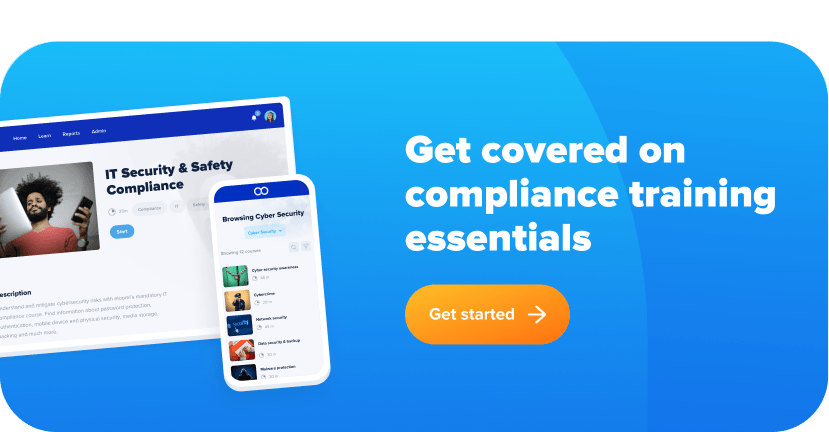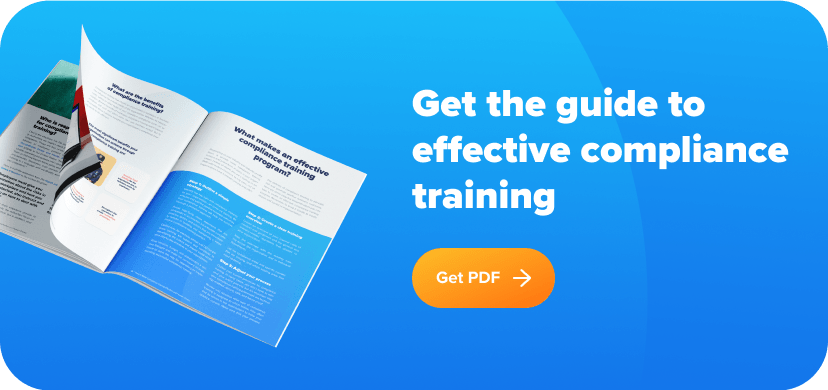Why affirmative defense matters: Nothing will prevent an employee lawsuit. You may still need to incur legal costs to defend your company. But by having clear processes for documentation, your HR team plays a crucial role in keeping those legal costs low and avoiding costly fines and penalties.
What is an Affirmative Defense
An affirmative defense is a legal term that refers to a defense that can be raised in a lawsuit. It is an affirmative action, meaning the defendant takes responsibility for raising it and proving it. Companies typically use affirmative defenses in cases where the defendant may have violated a law, but has a valid excuse or justification.
In workplace discrimination and harassment claims, affirmative defenses can include things like:
- The defendant had a policy in place prohibiting discrimination and harassment
- The defendant took reasonable steps to prevent discrimination and harassment from happening
- The employee was not employed at the time of the alleged incident
When an Affirmative Defense Applies
There are a few scenarios when companies might use an affirmative defense if sued by an employee. Be aware that these are general scenarios and each workplace discrimination or harassment claim is unique and will require your detailed attention.
One scenario is when the company has a policy in place prohibiting discrimination and harassment. This can help to show that the company took reasonable steps to prevent discrimination and harassment from happening.
If you’re sued by an employee who was being discriminated against, your anti-discrimination policy is a great start, but you’ll need more. If they came to you or HR to discuss the discrimination they faced and you did nothing, that will not bode well for you. On the other hand, if you took their complaint seriously and conducted a full investigation based on your policy, that will help you defend against this claim.
Another scenario is when the company can prove that it had no knowledge of the discrimination or harassment happening. If an employee suffered discrimination but never raised their concerns with HR and there was no way for HR to know of the discrimination, this could provide a substantial defense for your company.

Policies Needed to Defend Against Employee Lawsuits
Employers should have a policy and clear compliance training in place that prohibits discrimination and harassment from happening. This is an absolute bare minimum.
Companies should also take reasonable steps to prevent it from happening, such as training employees on what makes up discrimination and harassment, and how to report it. The company should also investigate any complaints of discrimination or harassment thoroughly.
All of this must be documented in your company policies. Ideally, they all exist together in your company handbook, giving employees notice about the policies and what to do if they ever suffer discrimination or harassment.
Using Policies to Build an Affirmative Defense
So, how does a policy help you build an affirmative defense? By having these policies in place and taking the steps to prevent discrimination and harassment, you are putting your company in a much better position if an employee decides to sue. If you can show that you had a policy prohibiting discrimination and harassment, took reasonable steps to prevent it from happening, and investigated any complaints thoroughly, you will have a strong affirmative defense against employee lawsuits.
As a reminder: an affirmative defense won’t eliminate the lawsuit, but it will make it more likely that you can reduce the financial costs and reputation costs associated with an employee lawsuit.
If an employee feels like they’re being discriminated against or harassed, the first thing they should do is talk to their supervisor. If that doesn’t feel like an option or doesn’t solve the issue, they can reach out to HR. Many companies have a dedicated hotline or email address for employees to report these types of concerns. It’s important that you take these complaints seriously and conduct a full investigation.
If you can show that you took action when complaints were brought to your attention or that you had no knowledge of the discrimination or harassment happening, you will be in a much better position to defend yourself in court. Having policies in place is just one part of building an affirmative defense, but it’s an important one.
Why Training is Key to Building an Affirmative Defense
Training is the other crucial component to facing affirmative defense cases. Train your HR employees on what constitutes discrimination and harassment, and how to investigate any complaints. This will help them recognize any potential issues and properly investigate any complaints that are brought to their attention.
By training your employees on how to handle harassment or discrimination complaints, you are putting your company in a much better position if an employee does decide to sue. You can show that you took action when complaints were brought to your attention and conducted a full investigation.
It’s also important to train your managers on how to recognize and prevent discrimination and harassment from happening in their departments. They should know what to do if they witness any potential issues, and how to properly investigate any complaints that are brought to their attention. In most cases, they should immediately coordinate with your HR team, who will know best what steps to take and how to finesse the situation with confidentiality.
Above and beyond the necessities of anti-harassment and discrimination training, you may consider diversity, equity and inclusion training to better educate employees and managers, while promoting a healthier workplace environment that supports better communication and collaboration.
Your Next Steps to Secure Compliance Training
Here’s what you need to ensure your organization provides the support needed to employees and managers, and stays effectively protected against affirmative defense action:
- Clear anti-harassment and discrimination policies
- Communication lines open to employees and managers
- Training for your HR team to know how to investigate and handle complaints
- Comprehensive reporting and record-keeping processes
To help you with all these steps, partner with an employee training platform that does the hard work for you, so you can focus on your core business needs. With eloomi, we make sure your compliance training is up to date and contains accurate information to help guide and support your employees in their work.
Want to learn more? Get in touch to explore compliance training opportunities.








